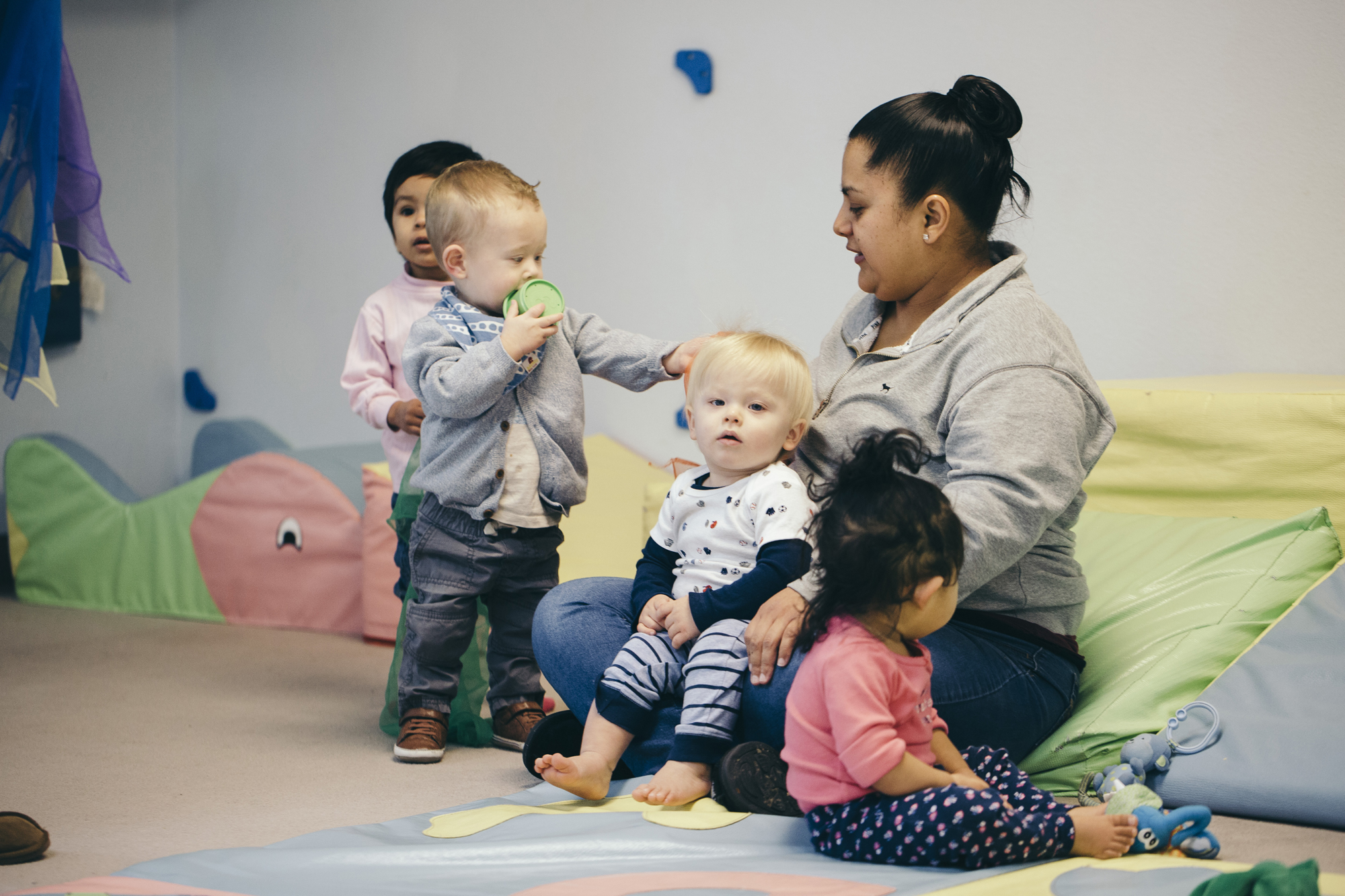Program Information
Little Blossom Montessori School is proud to offer programs from eight weeks of age through Kindergarten, with a consistent Montessori curriculum to children from two years on. Each Little Blossom program builds upon the previous program and provides a foundation for the next. By Kindergarten graduation, children at Little Blossom have experienced the myriad of advantages a comprehensive Montessori education offers. We believe that our Montessori approach provides an exceptional and liberating foundation for children as they prepare for life.
INFANT ROOM
Offered at our Natomas location.
At Little Blossom Montessori School, the Infant Room program is designed to work with babies’ individual needs, adapting to their physical, cognitive and psychosocial stages of development. The Infant Program serves children from the age of eight weeks until 17 months. The program is designed to duplicate the loving care and gentle stimulation that infants and toddlers need to grow and develop to their full potential. Flexible scheduling allows children to eat, sleep or play according to their own natural timetable.
The Infant playroom boasts decor and equipment that allow the babies to improve their motor skills and eye-hand coordination. Activities are based on infant's developmental ability and are selected with specific skills in mind. Stories and songs are part of every hour of the day. The Infant Program has a separate Nursery room where babies have their own assigned crib or bassinette. Infants are never given a bottle in their cribs as required by state regulation.
At 12 months, the infants are encouraged to explore, discover, invent and experiment while they gain an understanding of the world around them. They have moved out of the nursery and now have their own nap mats in the Infant Room II. This room is well equipped with educational play materials that encourage babies to safely explore the physical world.
Each infant has a log book that documents their day. Records indicated how the child ate, slept, interacted, and played as well as diapering. We encourage parents to share their thoughts and concerns by writing any comments in the log. Each child has their cubby for their personal items and clothing. Parents provide diapers and wipes. The ratio for the infant program is one teacher for every four children.
TODDLER (18 - 36) MONTHS
The Toddler Program offers more challenging equipment and introduces children to art materials, manipulative, puzzles, blocks, lots of books, educational toys, soft tunnels and fun activities which help improve their fine and large motor skills. Fun and educational activities and materials are provided to foster your child’s language development and social, emotional and cognitive growth.
The emphasis during the toddler years is on simple materials, a gentle pace and a deep respect for each child to ensure your toddler will truly love the school and environment and develop a deep and long lasting love for learning. Sense awareness is learning about dimensions, shapes, colors, tactile, auditory, taste and smell and the primary language development is the acquisition of the language connected to their observations and sense training. The environment includes child-size furniture and the materials are meticulously maintained and carefully chosen to meet the developmental needs of the children at this age. The child gets opportunities for individual and group activities, while integrating a caring and nurturing environment.
Each toddler has a log book that documents their day. Records indicated how the child ate, slept, interacted, and played as well as diapering. We encourage parents to share their thoughts and concerns by writing any comments in the log. Each child has their cubby for their personal items and clothing. Parents provide diapers and wipes. There is one teacher for every five children.
PRE-SCHOOL, PRE-K & KINDERGARTEN PROGRAM (2 1/2 - 6 YEARS)
The program involves a series a sequential, developmental, manipulative, and sensorial activities that are designed to ultimately bridge the gap between concrete and abstract learning.
Classrooms are meticulously prepared to meet the developmental needs of the children. The children use learning materials, created by Dr. Montessori, that are multi-sensory and sequential. The material acts as a facilitator of learning and role models. Holding a worldview of education, Little Blossom graduates are self-motivated, joyful learners, creative problem solvers, and confident young adults prepared for the inevitable challenges of life.














